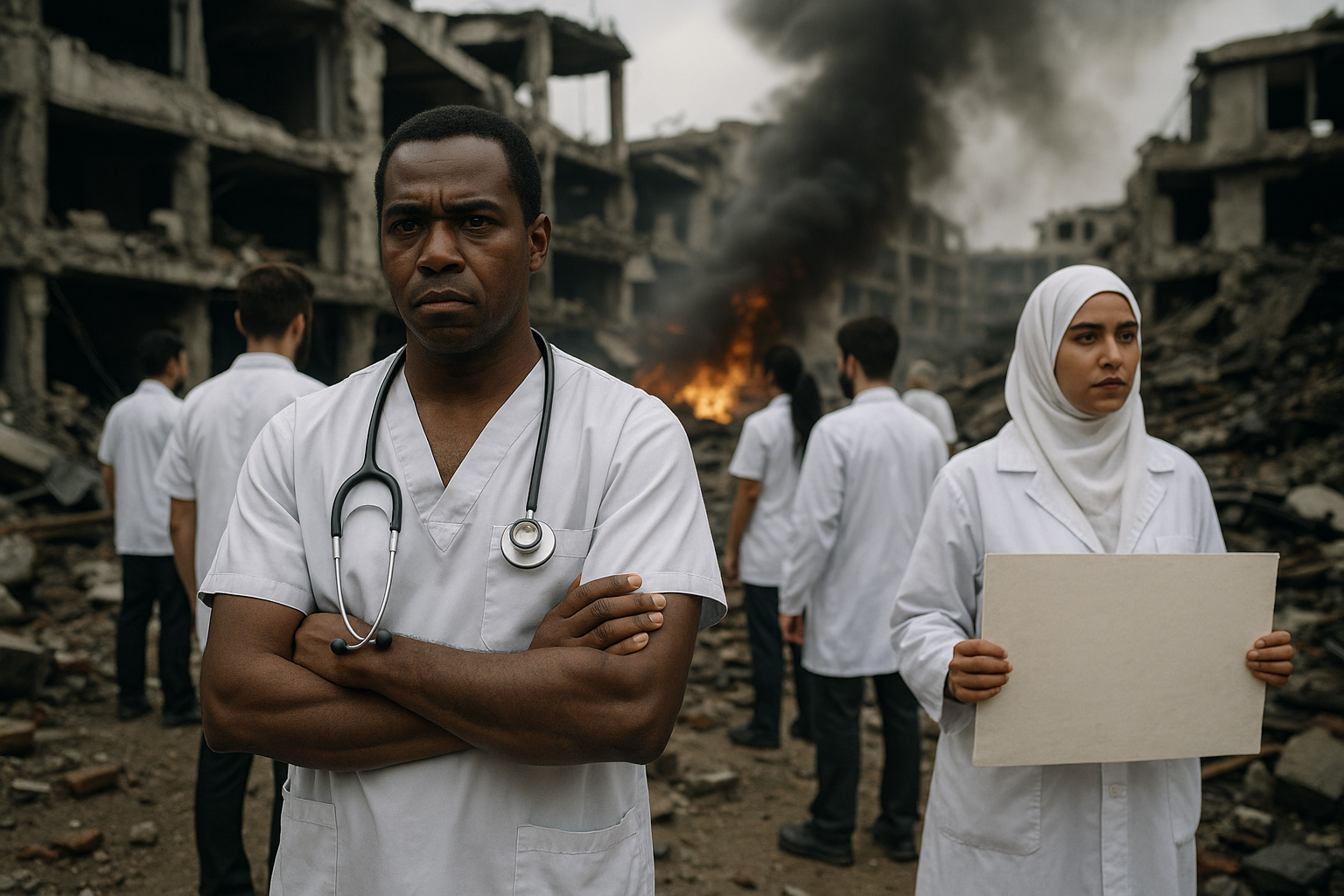UN Expert Urges States to Stop Targeting Health Workers in Conflict Zones
Mofokeng reminded Member States of their binding obligations under international human rights law to ensure the availability, accessibility, acceptability, and quality of healthcare for all.

In her latest and most impassioned address to the UN Human Rights Council, Tlaleng Mofokeng, the UN Special Rapporteur on the right to health, delivered a scathing critique of state-sanctioned violence and abuse against health and care workers. Presented in her fifth report, Mofokeng emphasized that medical professionals — often the last lifeline for communities in conflict zones — are increasingly being detained, tortured, and even killed for simply fulfilling their professional duties.
"Conflict zones are becoming ‘no human rights zones’, where doctors and paramedics are persecuted for doing life-saving work," she warned. Her statement underscores a disturbing global trend where medical neutrality — the foundational principle that health workers must be protected regardless of political circumstances — is being eroded.
Medical Facilities Under Attack, Survivors Left Without Care
Mofokeng’s report paints a grim picture: in many war-torn regions, hospitals and clinics are no longer sanctuaries. Instead, they are bombed, raided, or shut down — often deliberately. The consequence is deadly: injured civilians often have no access to treatment, stripping them of any chance of survival.
This targeting of health infrastructure violates multiple international treaties, including the Geneva Conventions, and represents not just a humanitarian crisis but also a stark human rights failure. According to the Special Rapporteur, this dismantling of care systems disproportionately affects the most vulnerable, exacerbating long-standing health inequities.
A Call for Justice, Protection, and Equity in the Health Workforce
Central to Mofokeng’s report is the recognition of health and care workers as frontline human rights defenders. These individuals not only deliver medical care but also uphold dignity, justice, and humanity in the face of violence. Yet, they are frequently exposed to systemic abuse — from physical harassment and mental trauma to unfair labor practices.
Her report advocates for comprehensive protections including:
-
Safe working environments free from violence and harassment.
-
Mental health support and well-being initiatives.
-
Fair remuneration and labor protections.
-
Legal accountability for those who harm or intimidate medical personnel.
She noted that women, ethnic minorities, migrant health workers, and those in rural or underfunded areas face compounded discrimination and risks, calling for intersectional policy responses.
Urging a Paradigm Shift: Reimagining Equitable Health Systems
Beyond protective measures, Mofokeng called for an overhaul of global health governance. “There is an urgent need for a paradigm shift to reimagine health systems that are sustainable and equitable,” she said. This includes investing in inclusive infrastructure, valuing the humanity of healthcare workers, and ensuring that healthcare remains a right — not a privilege.
Her vision rests on building systems that prioritize compassion, dignity, and equity, in both service delivery and employment standards.
States Must Fulfill Their Legal and Moral Obligations
Mofokeng reminded Member States of their binding obligations under international human rights law to ensure the availability, accessibility, acceptability, and quality of healthcare for all. This extends to safeguarding the personnel who deliver those services. She emphasized the importance of medicine as a tool for human rights — one that must never be weaponized or criminalized.
Finally, she issued a direct call to action: release all detained health workers immediately, end all forms of harassment and violence against them, and take proactive steps to uphold their rights and dignity.
“Health and care workers are key to a human-centered healthcare system,” she affirmed. “It’s time we treat them as such — not as collateral in conflict or targets of political retribution.”










